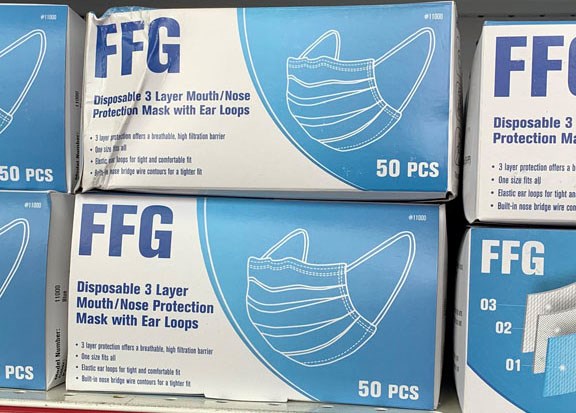Police and other law enforcement officials are now empowered to issue $2,000 violation tickets for price gouging of essential goods and the reselling of medical supplies, Minister of Public Safety and Solicitor General Mike Farnworth announced Sunday.
Citing the recent resale of face masks, Farnworth said some seedy people are preying on “collective anxieties” of the public during the global pandemic response.
But what constitutes “price gouging” and how is it applied? And do retail outlets face penalties for the prices they charge?
I ask because I received a photo and note from a reader accusing one Burnaby business of gouging its customers for some face masks (I’ve decided to not name the retailer because the point of this column isn’t to shame any one store, but to look at the issues involved). Now, I’m all for nailing seedy people for reselling medical supplies out of the back of their vehicles at a steep markup.
Things, however, are more complicated for a retail outlet.
In the photo attached, a box of 50 basic loop masks are selling for $74.99, plus tax. These aren’t high-level N95 masks, they are just the basic type.
If my math is correct, and that’s not always certain, this store is selling them for about $1.50 each. Is that an extreme amount to charge for an item?
It does seem a little on the high side because I checked out Walmart’s online site and a box of 50 was selling for about $44 before tax. I don’t know for a fact that this is the price Walmart is charging in the brick-and-mortar stores, but that’s what I saw online.

So I ask again – is this really price gouging? Sure, it’s higher than another outlet, but perhaps Walmart’s buying power is better than other retail stores. And perhaps the companies that make these masks are now charging retail outlets more to buy these products. Maybe the makers are the ones who are gouging.
I just don’t see how charging $1.50 per mask should be considered price “gouging” because it doesn’t seem like a lot of money per item.
According to the B.C. ministerial order, an “unconscionable price” means a price that “grossly exceeds the price at which similar essential goods and supplies are available in similar transactions to similar consumers.”
Consumer Protection BC will determine what constitutes an unconscionable price; the agency has already fielded over 1,500 price-gouging complaints, to date. CPBC said Sunday in a statement it “will now formally intake and assess price gouging complaints in the province, work with businesses to voluntarily correct the behaviour and liaise with other law enforcement agencies when escalation is deemed necessary.”
I appreciate where the reader is coming. I think it’s good that people are demanding more from everyone during this crisis.
Hopefully, the system will ensure people are protected from sketchy behaviour. I’m just not convinced this is one of those examples.
- With files from Graeme Wood, Glacier Syndicated.
Follow Chris Campbell on Twitter @shinebox44.



